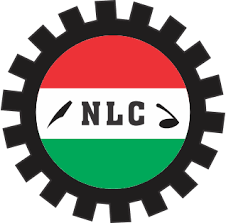The Nigeria Labour Congress (NLC) in Sokoto State has confirmed that civil servants across the state have begun receiving the newly implemented N70,000 minimum wage, making Sokoto one of the frontrunners in complying with the recently approved national wage increase.
Speaking to journalists yesterday at the NLC secretariat in Sokoto, the State Chairman, Comrade Abdullahi Aliyu, expressed satisfaction with the state government’s prompt implementation of the new wage structure, which has significantly improved workers’ welfare amidst challenging economic conditions.
“I can confidently confirm that workers in Sokoto State are now enjoying the N70,000 minimum wage as approved by the state government. The first batch of payments under the new wage structure has been disbursed, and feedback from our members across ministries, departments, and agencies has been overwhelmingly positive,” Comrade Aliyu stated.
The implementation comes after extensive negotiations between labour unions and the Sokoto State Government led by Governor Ahmed Aliyu Sokoto, who had previously promised to prioritize workers’ welfare despite the state’s limited resources.
Our correspondent gathered that the state government began the implementation last month, with the latest salary payments reflecting the new wage structure across all cadres of the civil service. The development has reportedly boosted morale among civil servants who have been grappling with the effects of recent economic reforms that led to increased cost of living nationwide.
Malam Sani Garba, a Grade Level 8 officer with the Ministry of Education, shared his experience: “The salary increase has made a significant difference. While prices of goods have increased dramatically in recent months, this adjustment helps us cope better with current economic realities.”
The state government has also assured that the implementation covers local government employees and pensioners, with appropriate adjustments made to ensure sustainable payment across all levels.
Financial analysts have commended the Sokoto State Government’s approach but raised questions about long-term sustainability. “While this is commendable, the key challenge will be maintaining this wage bill consistently, especially for a state that relies heavily on federal allocations,” noted Dr. Amina Bello, an economist at Usmanu Danfodiyo University, Sokoto.
The Commissioner for Finance, Alhaji Ibrahim Muhammad Lamido, responding to sustainability concerns, assured that proper financial planning had been put in place. “Before implementing this new wage structure, we conducted comprehensive financial modeling to ensure sustainability. We have streamlined expenditure in other areas and improved our internally generated revenue strategies,” he explained.
Meanwhile, other states across the nation continue to negotiate with their respective labour unions on the implementation timeline for the new minimum wage. The federal government had earlier approved the N70,000 minimum wage following protracted negotiations with organized labour in response to the removal of fuel subsidies and the resultant economic hardship.
The NLC Chairman used the opportunity to call on other state governments yet to implement the new minimum wage to follow Sokoto’s example, emphasizing that improved workers’ welfare translates to higher productivity and better service delivery to citizens.
As workers in Sokoto celebrate this development, attention now turns to other states where implementation discussions are still ongoing, with labour leaders maintaining that full compliance across all states remains their ultimate goal.
Sokoto Workers Now Enjoying N70,000 Minimum Wage, NLC Confirms
